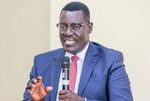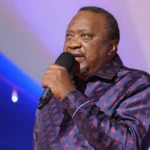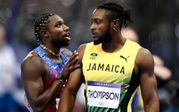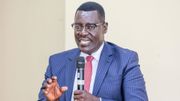Usain Bolt won the 200m trials at the Jamaican national trials for the 2003 World Championships when he was only 16 years old, but claims he was denied a chance to represent Jamaica due to the JAAA “policics”.
Jamaican sprint legend Usain Bolt has opened up about the challenges he faced in transitioning from a junior athlete to the professional ranks.
Bolt has shed light on how he was denied the opportunity to compete at the 2003 World Athletics Championships in France due to “politics” within the Jamaica Athletics Administrative Association (JAAA).
In June 2003, a 16-year-old Bolt delivered an electrifying performance at the Jamaican National Championships, winning the 200 meters in 20.28 seconds.
He outpaced LaTonel Williams and Ricardo Williams , proving he was Jamaica’s top young sprinter.
Why Kishane Thompson’s decision to take part in the World Indoor Championships could be bad news for his competitors, especially Noah Lyles.
Earlier that year, he had also dominated the CARIFTA Games in Port of Spain, Trinidad and Tobago, setting new games records in the 200 meters (20.43s) and 400 meters (46.35s).
Additionally, he helped Jamaica win gold in both the 4×100 meters relay (39.43s, a new games record) and the 4×400 meters relay (3:09.70), earning him the prestigious Austin Sealy Award for the most outstanding athlete of the games.
These achievements marked him as a rising star, making his exclusion from the World Championships all the more controversial.
Despite winning the 200 meters at the Jamaican National Championships, Bolt was not selected to compete at the World Championships in Paris.
The JAAA cited concerns over his fitness, as he had been dealing with conjunctivitis, which had disrupted his training. However, Bolt has since revealed that the decision went beyond just health concerns.
Speaking on Meet the Mitchells, Bolt shared his frustration with how the situation unfolded, claiming that JAAA politics played a major role in his exclusion.
“A lot of people do not even know I went to the 2003 World Athletics Championships in France. I was there when Asafa Powell false-started alongside Jon Drummond when he laid down on the track,” Bolt revealed.
“I was there that year. I was supposed to run, but it was a long story. There was a lot of politics involved in the system revolving around the JAAA because I was young and new. I was the one that won trials and had hit the times needed.
“I was assured that I would be running in the 4×100 meters, but when the event came, I was prevented from running. But I was a junior and did not know much.
“But you go through it all and you learn, and I joined Glen Mills two years later. Things started to evolve.”
Despite this early setback, Bolt turned professional in 2004 after signing a sponsorship deal with Puma.
Although he was courted by several American universities, Bolt chose to remain in Jamaica, training under coach Fitz Coleman before eventually joining Glen Mills in 2005.
That decision ultimately set him on the path to an unparalleled career, leading to multiple Olympic and World Championship titles and cementing his legacy as the fastest man in history.







)
)


